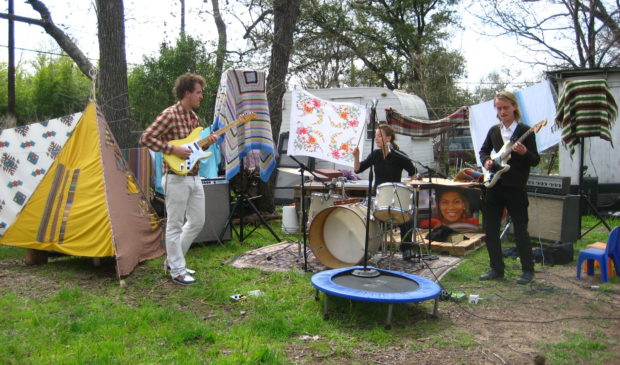Flexibility, affordability top CodeNEXT concerns for creatives
Friday, June 30, 2017 by
Chad Swiatecki Ambitions for flexible arts spaces, affordable living options and improved transit options are some of the common themes among artists and their supporters considering how they want CodeNEXT to reshape the city’s growth.
Those viewpoints were among the dozens offered Wednesday at a forum for musicians and other creatives organized by the city’s Music and Arts commissions. The gathering attracted about 50 residents and community organizers at the Museum of Human Achievement, a former warehouse turned creative arts space in East Austin.
With the city moving steadily forward with gathering feedback on the new Land Development Code, organizers saw a need to get more input from the city’s creative community, which has proven difficult to engage on civic matters in the past. The feedback generated from a series of small breakout groups will be assembled by a working group from both commissions and then forwarded to city staff involved in the CodeNEXT process.
Shirley Rempe, a project manager for the city’s Cultural Arts Division, said organizers wanted to help participants feel more comfortable reading about CodeNEXT, and helped them find the sections of the several-hundred-page plan that pertain most to issues relevant to the creative community. Rempe also stressed that because the code is still in an early draft form, the comments and concerns gathered at community forums can be added to new versions as it is changed in advance of an expected City Council vote in spring 2018.
“Asking questions about what kinds of spaces can (artists) do their work in is really helpful for the planning department to have, because at this point it’s more about asking, ‘Could the code say this?’” Rempe said. “This code and its revisions is like tweaking plenty of small dials, with lots of rules and regulations and it’s a lot to take in. My intention was to help them form their own comments and provide the key parts of the code for them to look at.”
Brad Carlin, managing director of Austin’s Fusebox Festival, said participants spoke with him about wanting flexibility in building uses to allow artists to have work studio space in their living space, along with larger flexible community gathering spaces.
Carlin said an ongoing concern with the code is its lack of language that addresses music and creative-focused uses specifically, which creates a gap in the planning that could otherwise worsen the affordability and availability of suitable spaces in the future.
Pointing to the recent closure of the Sekrit Theater residential backyard movie theater after objections from neighbors, Carlin said advocates are working to make artistic endeavors a “by right” part of land use practices.
“We’d like to encourage organic (arts) districts throughout the city, and so our strategy in our discussions was to reverse engineer the things that participants said they wanted,” Carlin said. “We kept hearing about flexibility from owners and artists who want to create work studio space in their homes.”
Oren Rosenthal, a member of the Music Commission, said discussion in his group focused on flexibility as well, with some talk of allowing cooperative artist living spaces with equipment and other resources available to all members. Those kinds of situations would, in theory, allow artists to have a small living space but enjoy a large area to work and collaborate with fellow creatives.
The need for public transit was another active part of the discussion, with Rosenthal pointing to the migration of artists to Lockhart as a symptom of Austin’s transportation woes and growing affordability problem.
“Our arts districts are disappearing and we have to ask where these places can be,” he said. “Things are cheap in Lockhart or out in Hutto, but it’s a shame now if people have to live so far away to be creative.”
Curious about how we got here? Check out the Austin Monitor’s CodeNEXT Timeline.
Photo by Sarah G. made available through a Creative Commons license.
The Austin Monitor’s work is made possible by donations from the community. Though our reporting covers donors from time to time, we are careful to keep business and editorial efforts separate while maintaining transparency. A complete list of donors is available here, and our code of ethics is explained here.
You're a community leader
And we’re honored you look to us for serious, in-depth news. You know a strong community needs local and dedicated watchdog reporting. We’re here for you and that won’t change. Now will you take the powerful next step and support our nonprofit news organization?











